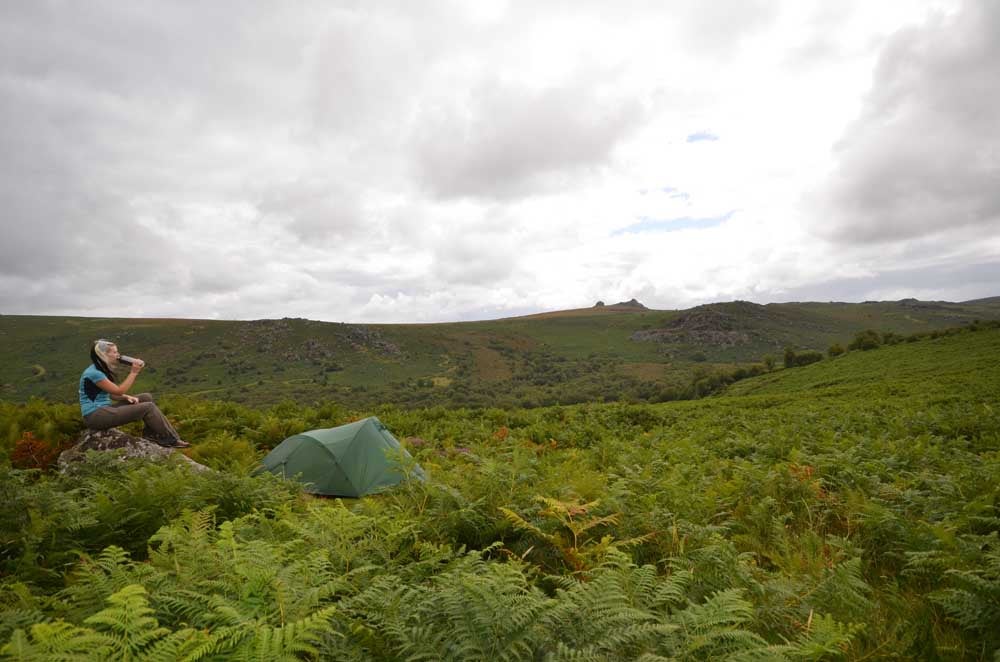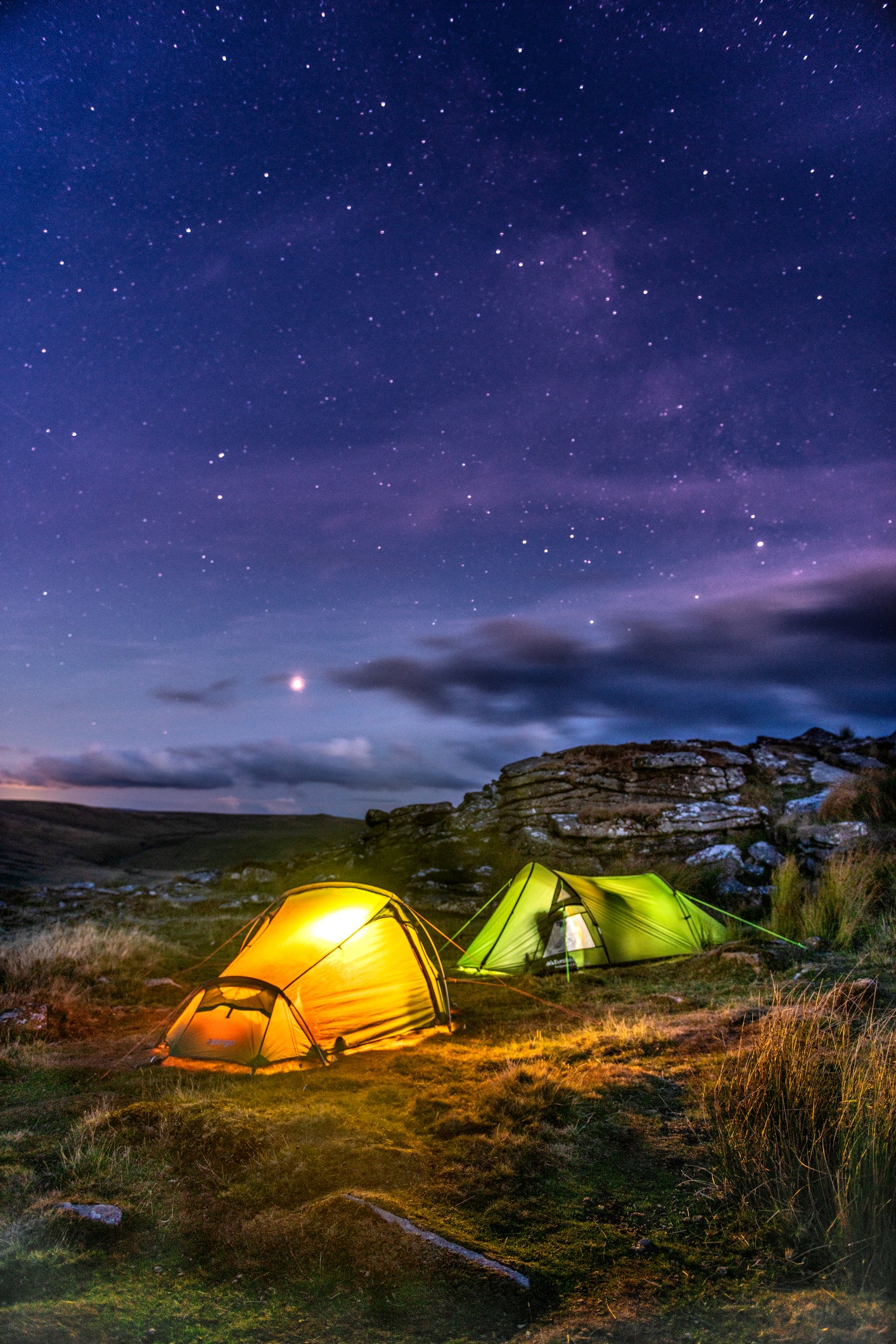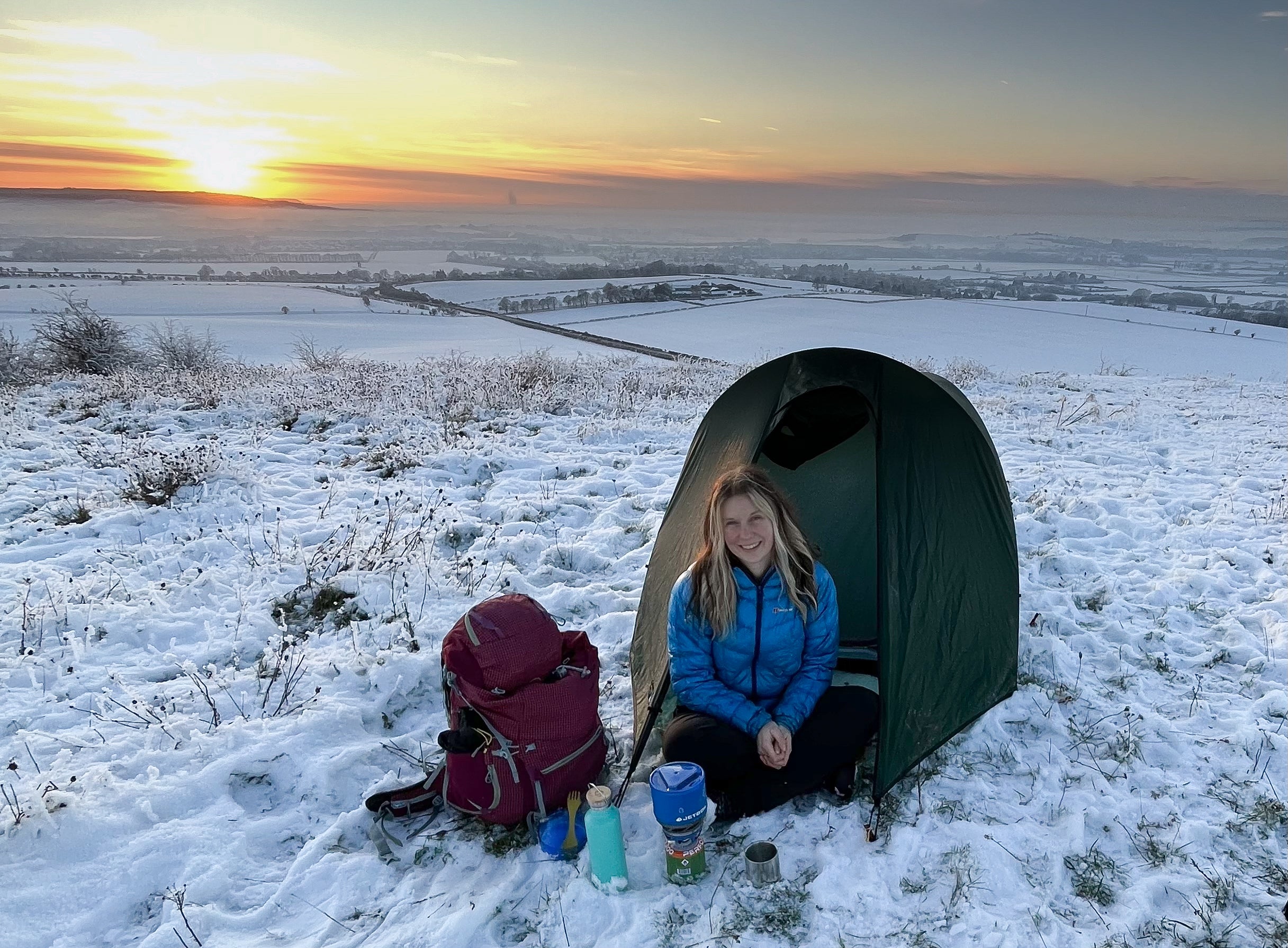Wild camping should be a basic human right – it’s a life-altering experience everyone should be allowed to try
The Supreme Court’s ruling on allowing wild camping in Dartmoor National Park is a win for outdoor enthusiasts, says adventurer Phoebe Smith

“It always rains on tents. Rainstorms will travel thousands of miles, against prevailing winds for the opportunity to rain on a tent.” So said the American humorist Dave Barry in his skit about camping back in the 90s. And as any wild camper – particularly those who’ve spent many nights in a tent around Dartmoor National Park – will know, it can, at times, feel comically true.
Yet for the past three years, we outdoor lovers have been battling more than unpredictable British weather.
Since the Dartmoor Commons Act was legislated in 1985, parts of England’s National Park represent the only area in Britain outside of Scotland (which has the far more progressive Land Reform Act of 2003) where wild camping is legally allowed.
As such, it has become the initiation ground for generations of Scouts, Duke of Edinburgh participants and the annual Ten Tors Challenge. For me, it was the place where I – short of time and money – cut my teeth as an adventurer, allowing me to hone the art of responsible wild camping without the worry of falling fowl of the law, leading me many years later to co-found the #WeTwo Foundation, a charity that empowers underprivileged young people through expeditions.

So it was with dismay that I learned of the proposed blocking of camping on Dartmoor back in 2022, by multi-millionaire Blachford Estate landowners Alexander and Diana Darwall. The couple have, since 2013, owned the Blachford Estate on Dartmoor – an area of land estimated to be twice the size of Gatwick Airport) – and in 2022, decided they didn’t want wild campers on their land anymore.
The lengthy legal battle ended on Wednesday, May 21, when the Supreme Court ruled that wild camping on Dartmoor should be allowed. For non-campers, this may seem insignificant. But as a woman and as someone who grew up in a working-class area of the country, this result is vital.
When I discovered wild camping, it was, as it is for many, life-altering. It wasn’t simply sleeping in a tent. It was freedom. It was the chance to disconnect from the stresses of daily life and reconnect with the natural world. It was confidence boosting and – importantly – cost me nothing.

I’ll never forget my first wild camp on Dartmoor, watching the stars come out in a sky clearer than one I’d ever seen before, being woken by birdsong and seeing the sunrise alone. I knew then that five-star hotels were overrated – I had a million above my bed.
Later, when I took groups of inner city youngsters out into the hills, I watched as they too fell under the spell of a night spent outdoors, smiled as they noticed the lack of police sirens and commented on how they had never seen a sunrise or the stars except for on a screen.
I saw their mental health improve, their confidence increase and their awareness of the issues faced by the natural world awaken. That’s why the upholding of our right to wild camp is so important.
And it’s not only me who thinks so – the Centre for Sustainable Healthcare revealed in January that the NHS could save £2.1bn pounds every year if everybody in the country had access to good quality green space.
Those who oppose this – a small pocket of farmers and landowners – say, much like the Darwalls tried to claim, that wild campers damage the environment. This is nonsense. Wild campers have no interest in damaging the environment that they love so passionately.
We are not cattle botherers, fly tippers or environment destroyers. We love animals and wildlife and pledge to leave a place in a better state than we found it (I always carry a bin bag with me and pick up any rubbish I find on my adventures) and as for the environment, we will fight tooth and nail to protect it, because we see the great value it brings.

Of course, there are always exceptions, but you don’t close a motorway to all cars because a few drivers throw rubbish out the window or drive badly. You use existing laws to tackle those specific problems (something highlighted by the Supreme Court, Lord Sales and Lord Stephens at the Supreme Court ruling regarding anti-social behaviour of any rogue campers).
I believe we should use this ruling as a wake-up call to think about how we can empower, educate and inspire people to experience the great outdoors responsibly, through equipping people with knowledge on how small actions affect larger landscapes – I’d suggest at the point of sale of camping items, and use our voices to make them fall in love with the landscapes they have historically been kept out of (according to Right to Roam we only have access to 8 per cent of England).
We don’t have to look far to see the success of places where wild camping is allowed. The Nordic countries (Norway, Sweden, Finland, Iceland) all ascribe to allemansrӓtten or ‘The Right of Public Access’, the literal translation of which is, ‘The all mans right’, meaning that everyone has the right to roam in Swedish nature (except private residences and within 70 m from dwellings or gardens). There, access to nature is regarded as a basic human right. Other countries have varying versions of this, including Estonia, Switzerland, Austria, the Czech Republic and Scotland.
The ruling today was one for common sense. Despite what the Darwalls have claimed regarding the actions of campers, the only crime being committed in Dartmoor right now is that landowners with deep pockets are taking an underfunded National Park to court over an issue that should have never been in doubt.
Phoebe Smith is an adventurer and Wander Woman Podcast host. She is the recipient of the Royal Geographical Society’s Ness Award 2025 for her promotion of accessible adventure, particularly to women and those from underprivileged communities, encouraging them to engage with nature in a thoughtful and conscious way.




Join our commenting forum
Join thought-provoking conversations, follow other Independent readers and see their replies
Comments